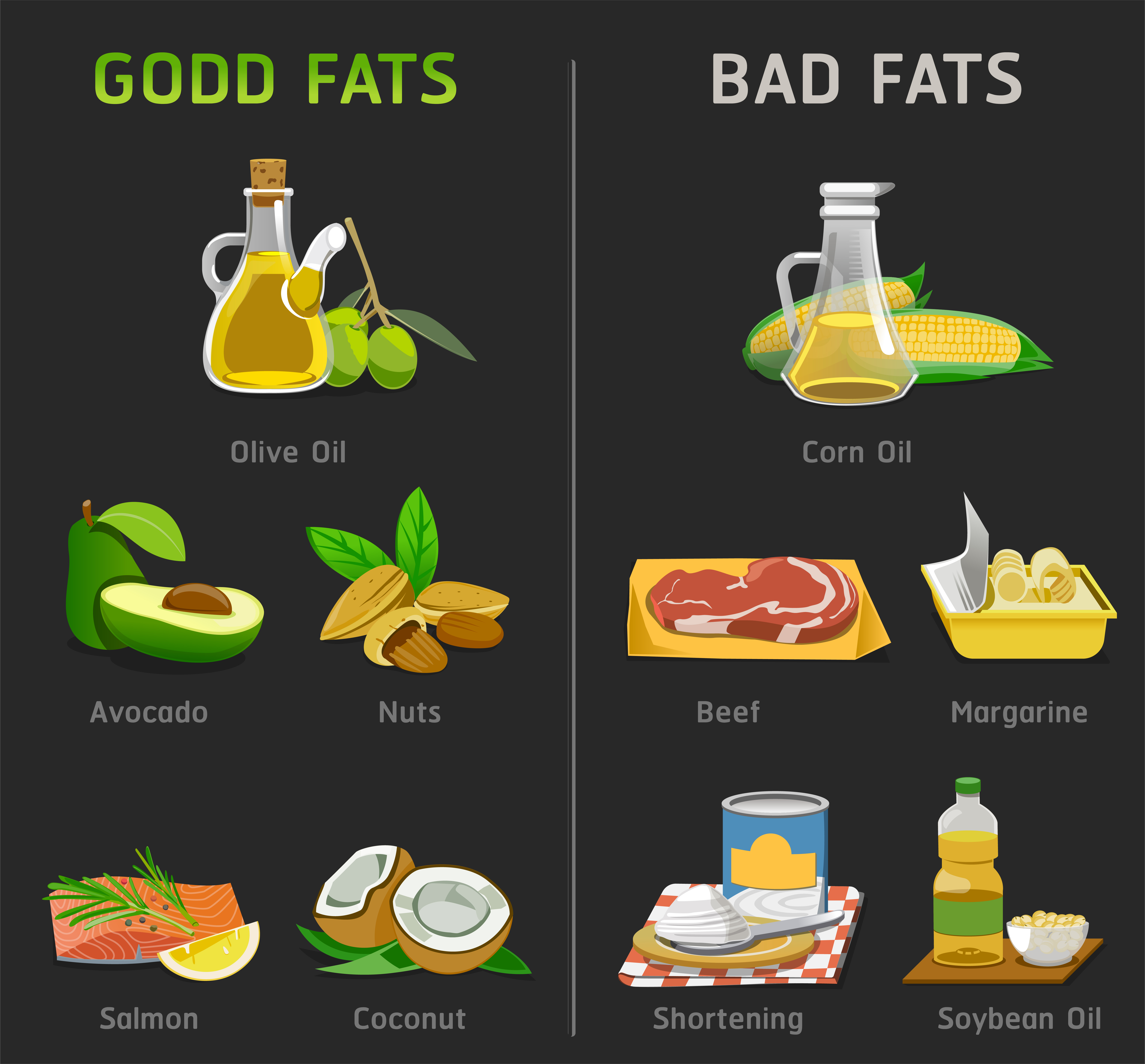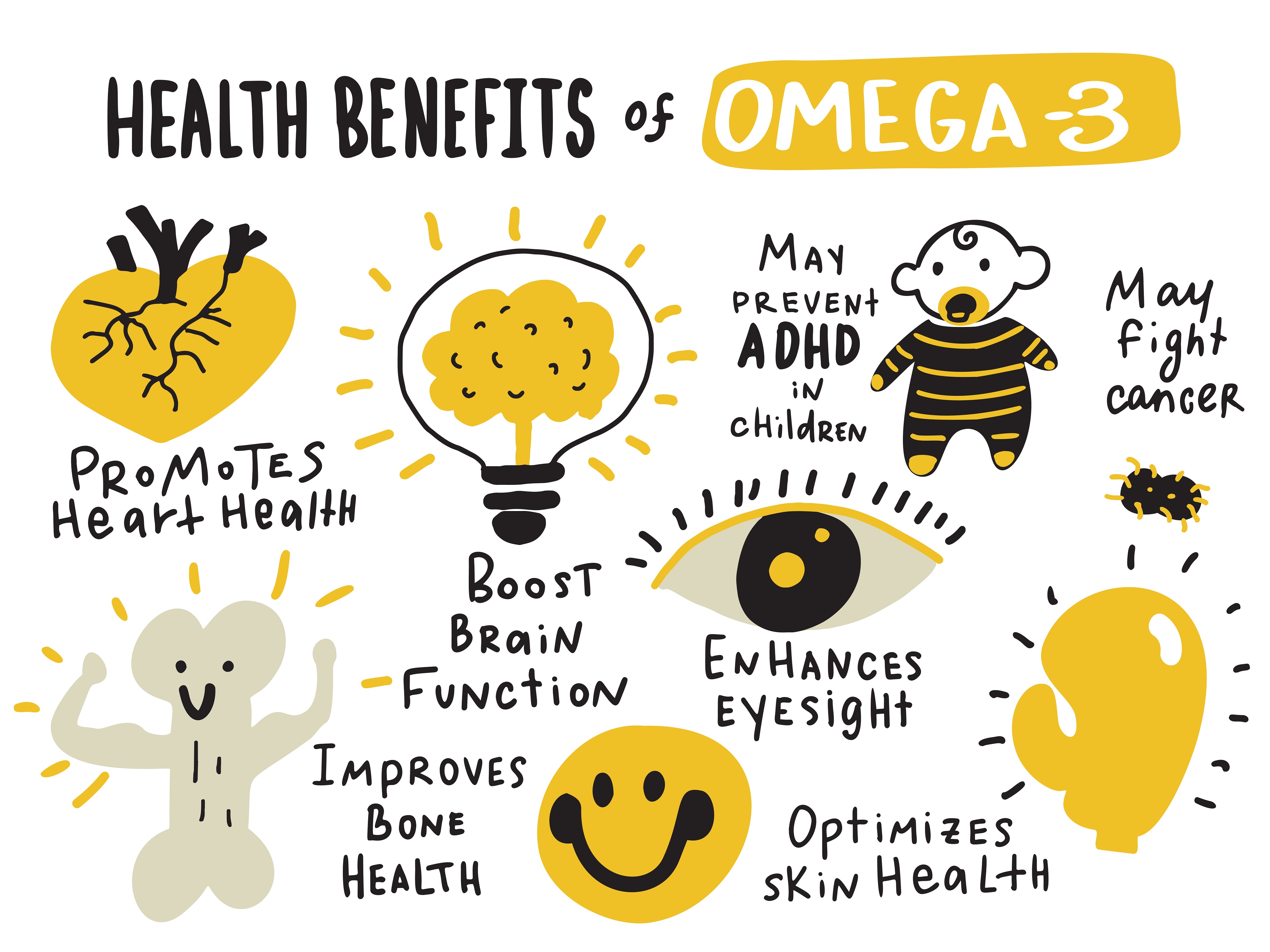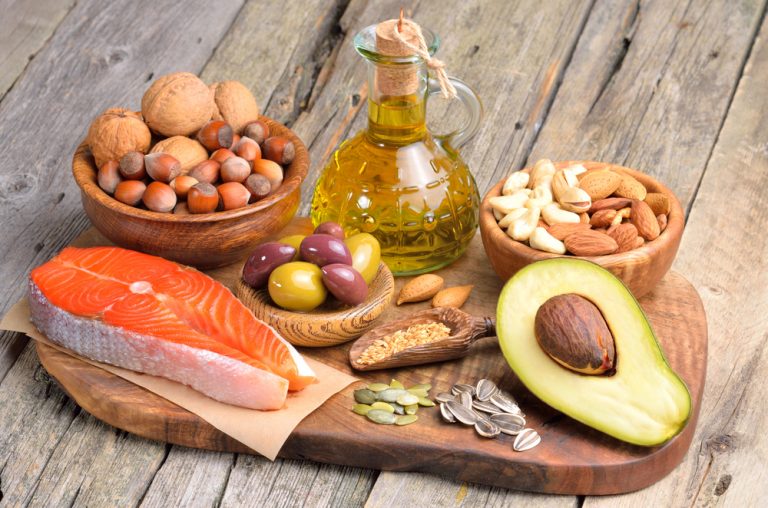Fat has long been demonized and we’re often being told to reduce our dietary fat, but it is important to remember that the body needs fat; just in the right amount and the right type. Not having enough “good” fats can lead to an array of health concerns and balancing fat intake can promote optimal functioning of our entire body.
Short story of fat properties
Back in the 1960’s, research emerged that suggested that fat contributed to heart disease and the fat-fear began. The Seven Countries Study, a large international study, revealed several important risk factors for heart disease. The study theorised that saturated fat increased blood cholesterol, predicting atherosclerosis and heart disease. However, the director of the study recognised that not all fat is harmful. But the media, the food industry and public health authorities weren’t interested in that and went on a fat-demonising rampage that has lasted decades. We banished all fats from our diet and decided that the low-fat options were going to be better for us. The result? Well, we didn’t get any healthier. In fact, since then, we have seen epidemic rates of obesity and its related health complications. The rates of diabetes, heart disease and cancer have skyrocketed. Accumulating research over the past few years has contradicted the belief that lowering cholesterol by reducing saturated fat in the diet protects against heart disease. While you can lower blood cholesterol with diets that are very low in saturated fat, studies show that this doesn’t reduce the risk of death from heart disease.
The moral of the story here is that fat isn’t bad. It’s just important to focus on the right types of fat that are going to be best for your body. Fat is as essential to your diet as protein and carbohydrates are in fuelling your body with energy. Certain bodily functions also rely on the presence of fat. The fat we eat literally becomes part of our cells and it can have a huge influence on how our cells communicate and interact.
As well as this, dietary fat has many other important roles:
- It helps manufacture and balance hormones
- It helps transport fat-soluble vitamins (A,D,E,K)
- Concentrated energy source
- Mineral absorption
- Forms our brain and nervous systems
- Provides two essential fatty acids that the body can’t make
- Forms our cell membranes
It’s important to note that not all fats are created equal. Some fats are better for you than others. Knowing the difference can help you determine which fats to try and stay away from and which to enjoy in moderation.
So what are the “good” types of fats?
Well fats are composed of building blocks called fatty acids. There are three main categories of fatty acids; saturated, polyunsaturated and monounsaturated. All foods and oils contain a mixture of fatty acids, but the predominant type of fat they contain is what makes them “good” or “bad”. Some foods also contain trans fats, a fourth type that either occurs naturally or is made artificially.

Let’s take a quick look at each of these fats.
Saturated fats
Saturated fats are solid at room temperature and this makes them good for cooking with (coconut oil, butter, ghee etc) as they are less prone to oxidative damage that can occur with high-heat cooking.
They are mostly found in high-fat meats and dairy products. It had been thought that in high quantities these fats could raise blood cholesterol. However, researchers at Harvard University now think saturated fat may not be as bad as once thought — but it still isn’t the best choice for fats and should be used sparingly.
Monounsaturated fats
Foods rich in monounsaturated fatty acids include olives, olive oil, nuts, avocado and avocado oil.
Including monounsaturated fatty acids in your diet may improve the function of blood vessels, help with mood and improve blood sugar control. Oils rich in monounsaturated fats also contain vitamin E, an antioxidant which has many health benefits. However, it doesn’t mean you should eat these fats in large quantities.
Polyunsaturated fats
Polyunsaturated fats play an important role in the body. They help form cell membranes, regulate gene expression, and aid in cell function. They’re both needed within the body – but in the right ratio. Several sources indicate that human beings evolved on a diet with a ratio of omega-6 to omega-3 essential fatty acids of approximately 1 whereas in Western diets nowadays, the ratio is around 15/1.
The two major types of polyunsaturated fats are Omega 3 and Omega 6 fatty acids. As a result of their different molecular structures, these fatty acids have different functions within the body.
- Omega-3 fatty acids - shown to reduce inflammation, essential for brain development and shown to reduce death from heart disease.
- Omega-6 fatty acids - involved in cellular signalling and acting as a vasodilator, reducing blood pressure.
Excess intake of Omega-6 has shown to increase inflammation and gut dysbiosis and it’s important to reiterate that we have far more Omega 6 present in the Western diet than Omega-3. Omega 6 is found in huge amounts in industrially processed and refined oils like sunflower, safflower and soybean and in all poultry.
There are six Omega-3 fatty acids and there are three especially important ones - ALA, EPA and DHA. Evidence suggests that deficiency of EPA and DHA omega-3 fats has been a major contributing factor in inflammatory disease. They are found in cold-water fatty fish such as salmon, mackerel, anchovies and sardines and marine algae.

Trans Fats
Artificial trans fats are found mostly in processed foods containing hydrogenated or partially hydrogenated vegetable oils. They have been shown to increase the risk of cancer, heart disease, obesity, and other inflammatory conditions—even at relatively low doses.
They provide no benefit whatsoever as they are high in processed fats and devoid of nutrients. These ones should be avoided as much as possible.
So what fats should we be eating and how much?
You should try to aim for around 3-5 portions of good fats a day. These could include a combination of the following:
20g nuts or seeds
½ avocado
15ml extra virgin olive oil drizzled over a salad
One portion oily fish
Lowdon on fats - summary
So there you have it, the low down on fats. To summarise, your body needs fats to function but they need to be the right fats in the right quantity.






